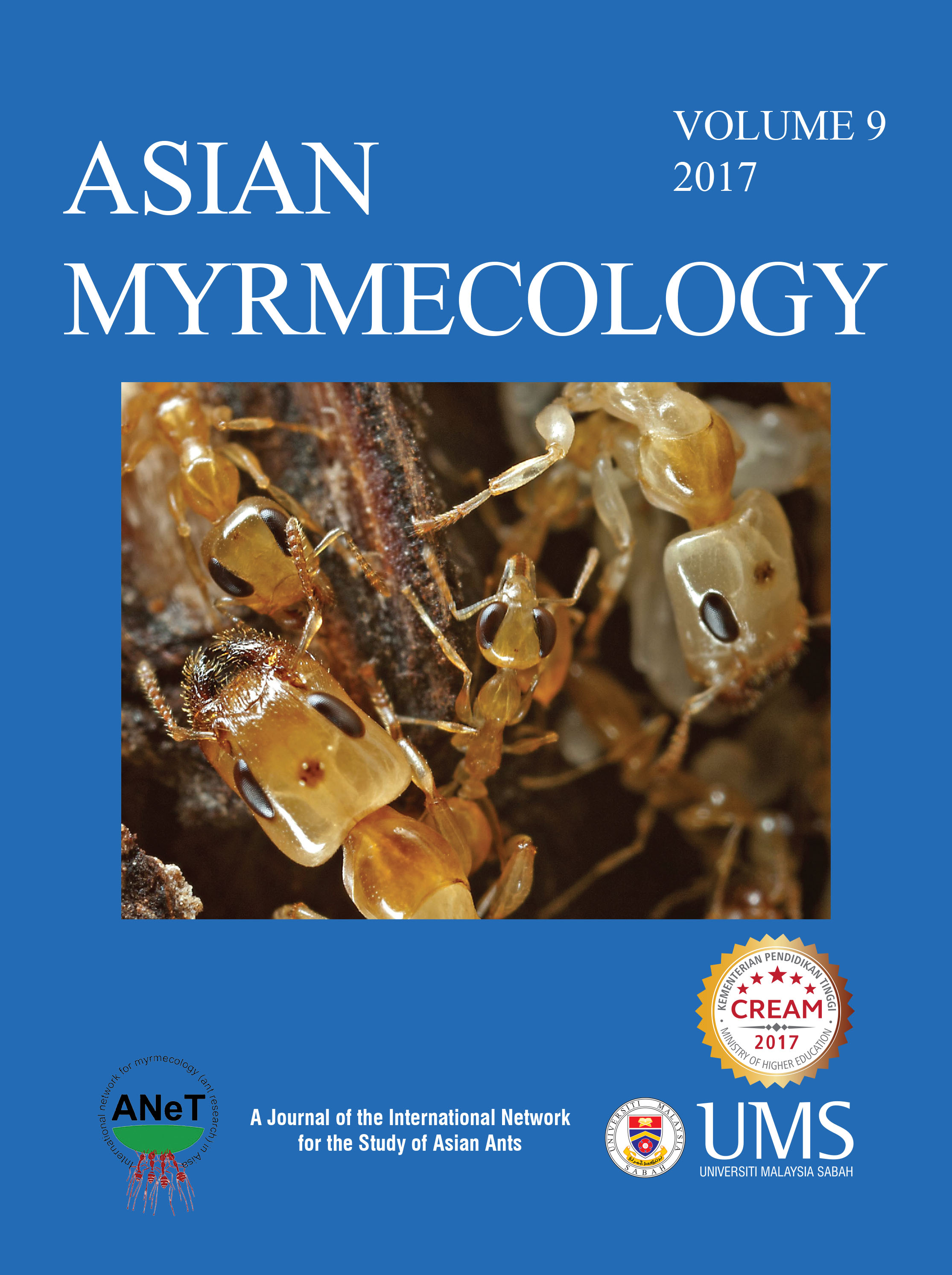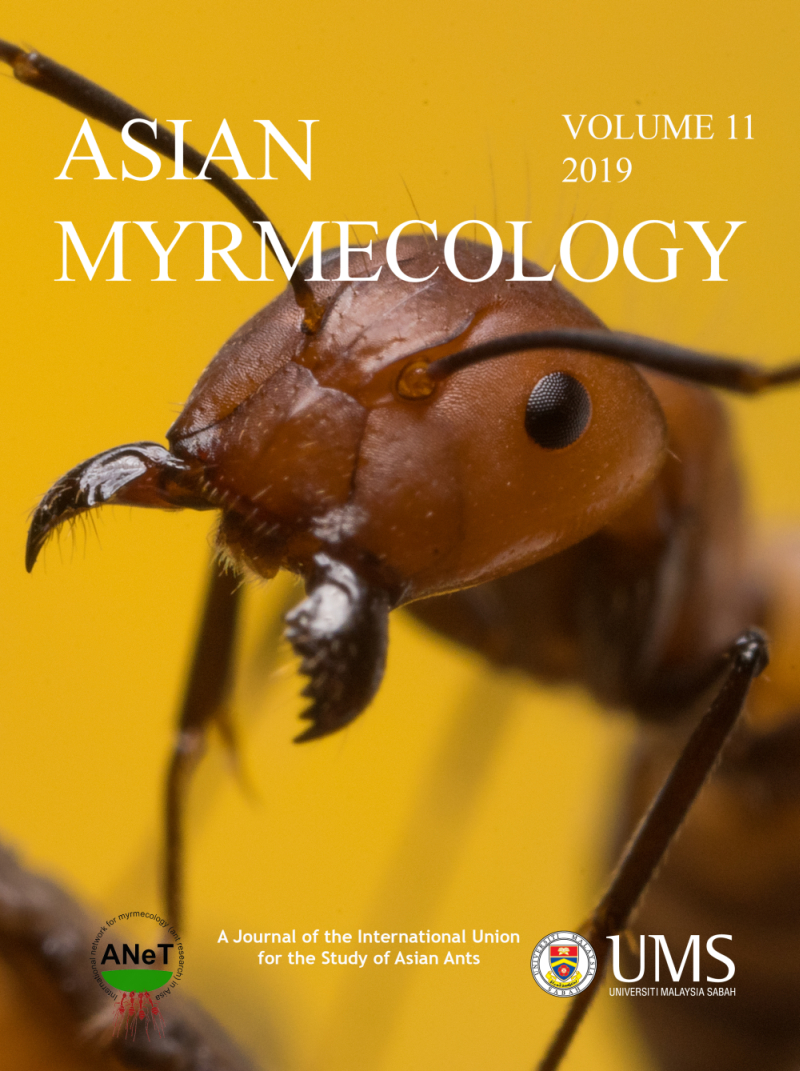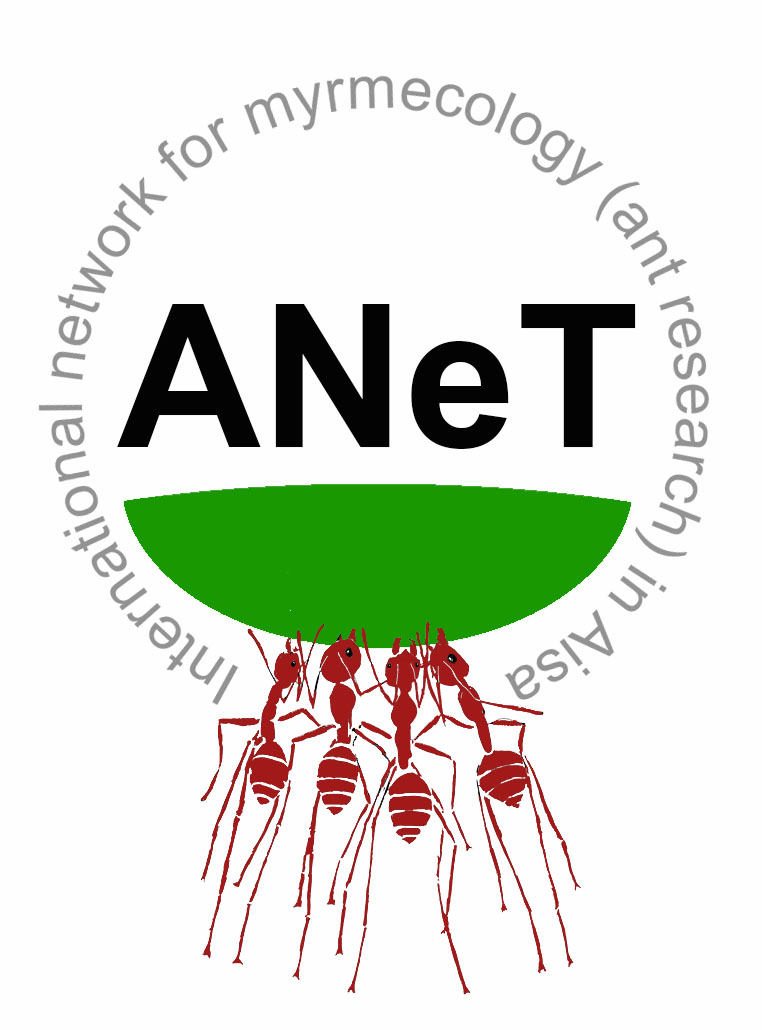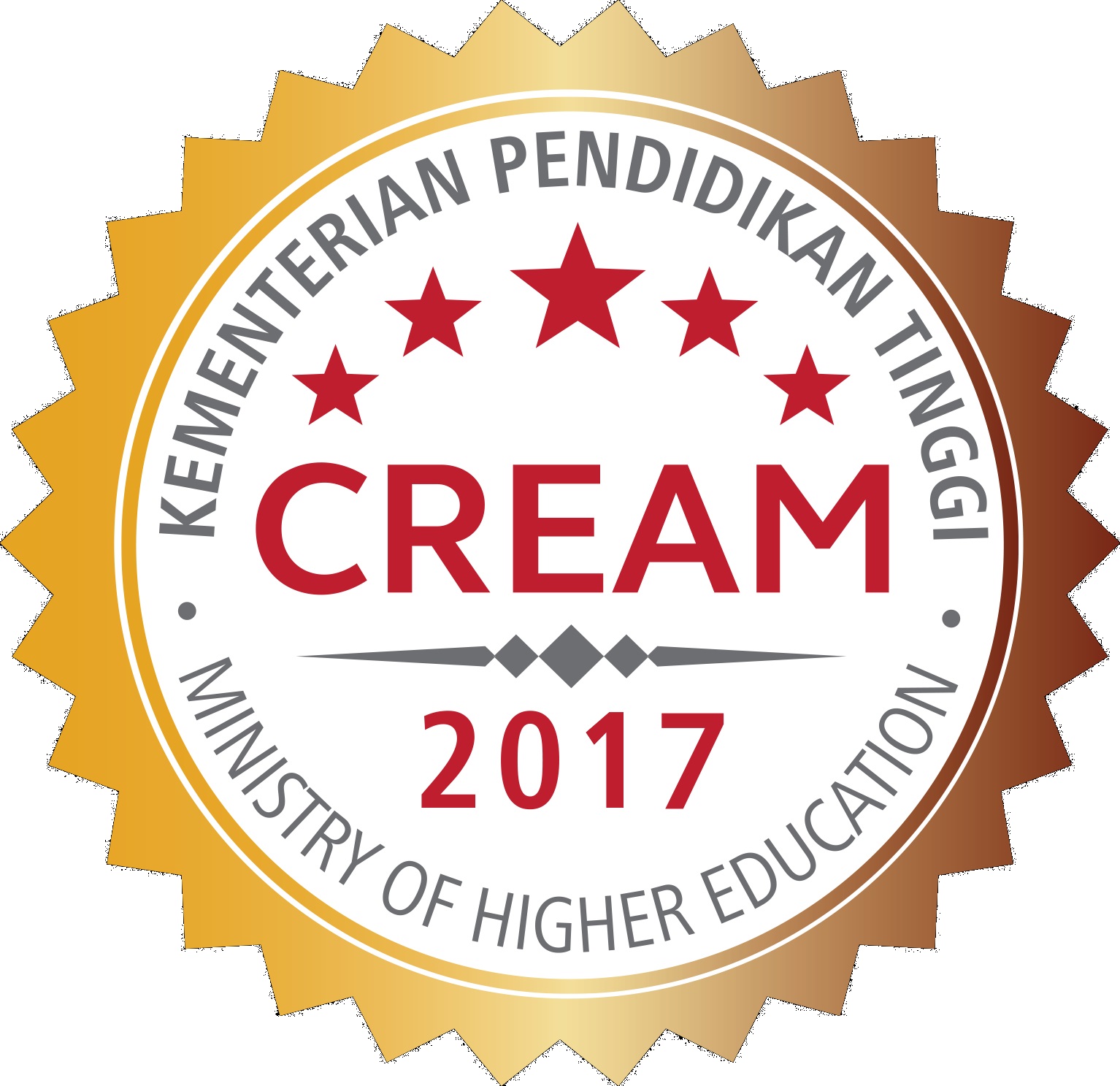ASIAN
MYRMECOLOGY
Image: François Brassard
Life History
DOI: 10.20362/am.009010
Asian Myrmecology 9: e009010 (1-9)
article first published online 07/June/2017
Colony composition and behavioral characteristics of Myrmoteras iriodum and M. jaitrongi in Ulu Gombak, Peninsular Malaysia (Hymenoptera: Formicidae)
FUMINORI ITO1*, SATOSHI MIYAZAKI2, ROSLI HASHIM3 & JOHAN BILLEN4
Abstract:
The colony composition and behavioral characteristics of the trap-jaw ants Myrmoteras iriodum and M. jaitrongi were studied in Ulu Gombak, Peninsular Malaysia. The following colony characteristics were common in both species: (1) Colony size was remarkably small, less than 10 workers on average with one mated dealate queen. Alate sexuals were produced in colonies with less than 10 workers. (2) Queens had a total of four ovarioles per individual (2+2) while workers had two (1+1). (3) Body size difference between queens and workers was not conspicuous: head width of queens was just 1.1 times bigger than that of workers. (4) Worker body size in small colonies was not significantly different from that in large colonies. (5) Virgin queens showed worker-like behavior. Finally, a solitary queen of M. iriodum that was kept in the laboratory showed non-claustral colony foundation. After producing five workers, an alate queen emerged.
Keywords:
caste dimorphism, non-claustral colony foundation, ovary
Get PDF (916K):
1Laboratory of Entomology, Faculty of Agriculture, Kagawa University, Ikenobe, Miki 761-0795, Japan
2Department of Bioresource Science, Tamagawa University, Machida, Tokyo 194-8610, Japan
3Institute of Biological Sciences, University of Malaya, 50603 Kuala Lumpur, Malaysia
4Zoological Institute, KU Leuven, Naamsestraat 59, Leuven, Belgium
*Corresponding author: ito@ag.kagawa-u.ac.jp



